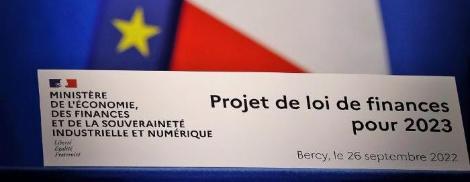Financing and qualifying nature-related projects in Priority Urban Neighbourhoods (QPV)
January 2024
Agence nationale de la cohésion des territoires (ANCT)
Programme 147 ‘Urban Policy’ is the budgetary basis for specific funding in support of urban policy. This funding is in addition to the general funding available for priority urban neighbourhoods. To finance nature projects in disadvantaged urban neighbourhoods, the FabriqueProspective has strengthened the system with the Green Fund and European funds by proposing a ‘contribution to biodiversity’ assessment grid to help better define needs.
To download : fp_qpv_nature_complet_29_janvier_0.pdf (11 MiB)
The French government’s ‘urban policy’ programme (Programme 147) provides funding for actions carried out as part of urban contracts. These appropriations are managed by the prefectures and State departments at local level. However, they only include a minority of the funding for urban renewal projects. Programme 147 funding is in addition to general law funding. The participants in the Fabrique Prospective stressed the importance of making better use of ordinary law, in particular the Green Fund and European funds, to finance nature-related projects in disadvantaged neighbourhoods.

A grid for assessing nature-related projects in disadvantaged neighbourhoods
While they are in favour of developing nature-related projects in the inner city, participants in the Fabrique Prospective raised the need for an assessment grid to examine and measure the relevance of projects. To this end, they co-constructed a two-part assessment grid based on the self-assessment grid for the environmental impact of public policy actions developed by the Amorce network to support contracts for the success of the ecological transition (CRTE).
The ‘contribution to biodiversity’ section aims to identify whether the project makes a significant contribution to protecting, conserving or restoring biodiversity and ensuring the good status of ecosystems or protecting ecosystems that are already in good status, by :
-
conserving nature and biodiversity, including by establishing a favourable conservation status for natural and semi-natural habitats and species ;
-
using and managing land in a sustainable manner, in particular by ensuring adequate protection of soil biodiversity, neutrality with regard to land degradation, cleaning up contaminated sites and combating the artificialization of land;
-
implement sustainable agricultural practices, in particular those that help to enhance biodiversity or halt or prevent the degradation of soil and other ecosystems;
-
manage forests sustainably.
An action can be considered negative when it is highly detrimental to the good condition and resilience of ecosystems or to the conservation status of habitats and species. The Amorce network lists several questions to ask before making a positive, negative or neutral assessment of the project:
-
Has the project been designed to avoid, reduce or, failing that, compensate for its negative impact on biodiversity?
-
Does the project contribute to reducing the artificialization of natural areas by recycling and/or densifying areas that have already been artificialized?
-
Does the project contribute to the renaturation of artificialised areas?
-
Does the project contribute to restoring and/or preserving the ecological and social quality of natural spaces in urbanised areas?
-
Does the project contribute to the development and/or improvement of green, blue or black corridors?
-
Does the project provide opportunities for wildlife to adapt?
-
Does the project encourage the preservation and/or restoration of local species / avoid the introduction of invasive exotic species?
-
Does the project contribute to the respectful use of natural products, guaranteeing the sustainability of their exploitation?
-
Does the project contribute to restoring and/or preserving the richness and good condition of the natural heritage?
-
Does the project contribute to preserving, restoring and/or strengthening ecosystem services in the face of climate change?
-
Does the project contribute to restoring and/or preserving the landscape quality of the area?
For participants in the Fabrique Prospective, this grid can be used in two ways:
-
either as a reading grid, i.e. an aid to understanding the different facets of a project as well as possible ;
-
or as a selection grid: in this sense, projects that do not meet certain conditions (to be chosen by each municipality/inter-municipality) will not be selected but should be the subject of recommendations for improvement.